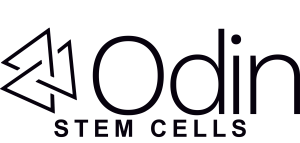April is Autism Awareness Month, a time to elevate voices, deepen understanding, and spotlight new possibilities for the millions of individuals and families affected by autism spectrum disorder (ASD). At Odin Stem Cells, we are passionate about exploring the frontiers of regenerative medicine and sharing breakthroughs that could transform lives. One such frontier gaining significant momentum is the use of mesenchymal stem cells (MSCs) in the treatment of autism.
The Science Behind MSCs and Autism
Mesenchymal stem cells, or MSCs, are multipotent cells known for their ability to modulate the immune system and promote repair in damaged or inflamed tissues. In the context of autism, these capabilities are especially compelling given the increasing evidence of neuroinflammation and immune dysregulation as underlying factors in ASD.
Recent research has explored how MSCs may help restore balance in the brain and support neural connectivity. These effects are thought to be mediated through several key mechanisms:
- Immunomodulation: MSCs can reduce inflammation by regulating immune responses, potentially easing the neuroinflammatory symptoms often seen in ASD.
- Paracrine Signaling: MSCs release beneficial molecules, including growth factors and cytokines, that support cell repair and communication.
- Extracellular Vesicles (EVs): MSC-derived EVs, including those carrying microRNAs like miR-137, have demonstrated potential in animal models to improve behavior by targeting inflammatory pathways.
Clinical Progress and Promising Studies
Several groundbreaking studies and trials are paving the way for a deeper understanding of MSC therapy in autism:
- Duke University’s Marcus Center is leading the charge with multiple trials using human umbilical cord tissue-derived MSCs (hCT-MSCs):
- The IMPACT Study, a Phase II clinical trial, has explored how hCT-MSCs might improve social communication in children with ASD. Study link
- The TACT Study focuses on toddlers (18 months to 3 years old), testing safety and early signs of benefit. Study link
- The AIMS Study is investigating MSC therapy in adults with ASD, an often underrepresented group in autism research. Study link
- Case reports, such as one involving a 4-year-old child treated with Wharton’s jelly-derived MSCs, have shown notable improvements in speech and motor skills over two years without adverse effects. Case report
These studies give families and clinicians alike new reason to hope—while the science is still evolving, the safety profile of MSCs has been encouraging, and early results show meaningful improvements in quality of life for some patients.
A Note of Caution and Optimism
While the research is promising, MSC therapy for autism is still considered experimental. It is vital that families consult with medical professionals and participate in treatments only through accredited and regulated clinical trials. At Odin Stem Cells, we advocate for ethical research and responsible innovation, ensuring patient safety remains the top priority.
Looking Ahead with Hope
Autism Awareness Month is not only a time for education but also a season of hope. For many families, the journey through autism can feel overwhelming and uncertain. But advances in regenerative medicine, like those involving MSCs, are lighting a new path forward. As the research continues and the science matures, we are optimistic that these therapies will become part of a broader toolkit to support individuals with ASD in leading fuller, healthier lives.
At Odin Stem Cells, we remain committed to advancing this important work and being a beacon of hope for families worldwide.
To learn more about current MSC research or to speak with one of our specialists, visit OdinStemCells.com.

